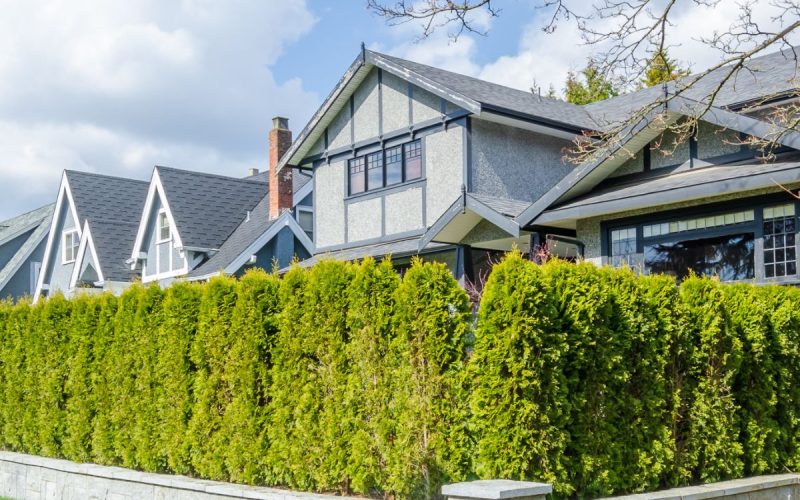Many think of landscaping as the process of making an outdoor area or garden more attractive. But adding plants, sculpting the terrain, and installing structures like fences and hardscape elements can do more than improve the appearance of your outdoor space.
Thoughtful planting and hardscaping protect your property value and enhance the charm and practicality of your outdoor environment. Discover three problems good landscaping design helps solve.
Water Infiltration
Water infiltration is a process where water on the ground surface enters the soil. Factors such as soil composition, land slope, vegetation cover, and rainfall intensity can significantly impact the rate and extent of water infiltration.
Excessive water infiltration can wreak havoc on your home and property. Puddles in the yard, water seeping into your basement, and other frustrating issues can arise from the two types of water infiltration: surface and subsurface.
By incorporating proper grading and installing effective drainage systems, you can prevent these issues. Also, strategic plant placement can help absorb excess water and provide additional drainage.
Soil Erosion
Good landscaping design helps solve the problem of soil erosion, a process in which natural forces like wind or water carry away the top layer of nutrient-rich soil. Soil erosion can threaten the structural integrity of your property, lead to the loss of valuable topsoil, and even degrade the quality of nearby water sources.
By incorporating retaining walls, slope stabilization techniques, and properly selected plants, you can prevent soil from washing away during heavy rainstorms. If you want to DIY basic yard maintenance to keep your property pristine, make sure you have the essential equipment for better lawn care.
Lack of Privacy
In today’s increasingly urbanized world, privacy is getting harder to come by, but that doesn’t mean you have to give up on your dream of a secluded backyard escape. Creative landscaping provides natural barriers for enhanced privacy.
Utilizing tall, dense plants, combined with strategically placed fencing or hardscape elements, can create a sense of seclusion and serenity in even the most crowded neighborhoods. Natural barriers not only obscure views into your property but also absorb sound, thereby providing a sense of seclusion and tranquility.
Tips To Reduce Noise Pollution
Use trees and shrubs as natural sound barriers to help diffuse and absorb unwanted noise while also making your yard a more peaceful and tranquil environment. Evergreens and other dense vegetation can be particularly effective at blocking out noise throughout the year.
Proactive landscaping strategies serve not only aesthetic purposes but also practical ones, such as preventing water infiltration, reducing soil erosion, and enhancing privacy. With the right landscaping, you can create a beautiful, serene, and secure outdoor environment.

